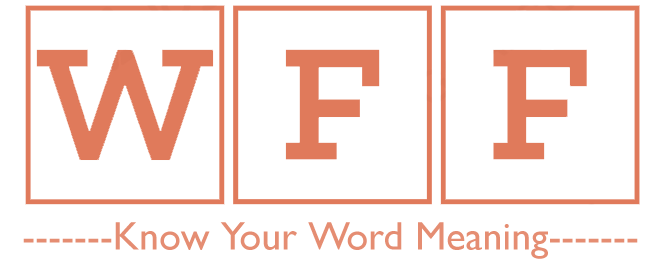Do you know what is the RN Full Form? The complete form of RN is Registered Nurse. Registered Nurses (RNs) are healthcare professionals who provide comprehensive patient care, education, and emotional support to individuals and their families. With specialized training and experience, RNs offer a wide range of services in hospitals, nursing homes, and other healthcare facilities, helping to promote healthy lifestyles and quality care.
Table of Contents
What is the RN Full Form?
The complete form of RN stands for Registered Nurse.
- R- Registered
- N – Nurse
RN also stands for –
- RN – Real Network, in Technology
- RN – Right Now, in chats on Social Media
- RN – Royal Navy, in British Navy
- RN – Register Now in the Form fillup.
How to become a Registered Nurse?
Several steps must be taken to become a registered nurse. First, individuals should obtain an Associate’s Degree in Nursing (ADN) or a Bachelor of Science in Nursing (BSN) from an accredited program. These degree programs typically take 2-4 years to complete and provide students with a solid foundation of knowledge and skills in nursing. After completing their education, the next step is to pass the National Council Licensure Examination (NCLEX-RN). This standardized test assesses the individual’s knowledge and competency to practice as a registered nurse.
Once the NCLEX-RN has been passed, the individual can work as a registered nurse in various healthcare settings such as hospitals, clinics, long-term care facilities, and schools. They may also choose to specialize in a specific field, such as pediatrics, oncology, or emergency care.
Additionally, many registered nurses continue their education to advance their careers by obtaining higher degrees, such as a Master of Science in Nursing (MSN) or Doctor of Nursing Practice (DNP) which opens the door to more opportunities and higher-paying positions.
What are the different responsibilities of a Registered Nurse?
A registered nurse (RN) is a healthcare professional responsible for providing patient care, administering medication, and working with other healthcare professionals to ensure that patients receive the best possible care. They play a vital role in the healthcare system and can work in various settings such as hospitals, clinics, long-term care facilities, and schools.
The primary responsibilities of a registered nurse include:
- Assessing patients’ health status and needs
- Participating in research and quality improvement initiatives
- Communicating with other healthcare professionals to ensure continuity of care
- Administering medication and treatments
- Developing and implementing care plans
- Monitoring and documenting patients’ progress
- Educating patients and their families about their health conditions and treatment options
How much does a Registered Nurse earn?
The salary for a registered nurse (RN) varies depending on factors such as location, level of education, and years of experience. According to the Bureau of Labor Statistics (BLS), the median annual salary for registered nurses in the United States as of 2022-2023 was $82,750.
Here are some additional details on the earning potential for registered nurses:
- The lowest 10 percent of RNs earned less than $56,190, while the highest 10 percent earned more than $106,530.
- RNs working in hospitals earn more than those in other settings, such as nursing homes and home health care services.
- RNs with a Bachelor of Science in Nursing (BSN) degree tend to earn more than those with an associate’s degree in nursing.
- RNs with more experience tend to earn higher salaries.
It is important to note that earning potential also varies by location, and the cost of living also plays a role. RNs working in urban areas may earn higher salaries than those working in rural areas due to the higher cost of living in urban areas.
It’s also important to note that this is a general overview, and actual earnings may vary depending on the facility, location and the individual nurse’s qualifications and experience.

Other RN Full Forms List
| Term | Full Form | Category |
| RN | Registered Nurse | Medical |
| RN | Real Network | Networking |
| RN | Right Now | Chats |
| RN | Revisorsn | Accounts and Finance |
| Rn | Radon | Chemistry |
| RN | Residue Number | Chemistry |
| RN | Record Number | Database Management |
| RN | Nota Bene Xpl Program | File Type |
| RN | RATNAGIRI | Indian Railway Station |
| RN | Resident Nurse | Job Title |
| RN | Royal Navy | Military and Defence |
| RN | Roman Numeral | Maths |
| RN | Rule Name | Maths |
| RN | Result Number | Maths |
| RN | Random Number | Maths |
| RN | Renumbering | Maths |
| RN | Response Numerical | Maths |
| RN | Recursive Normalization | Maths |
| RN | Real Nice | Messaging |
| RN | Real Nut | Messaging |
| RN | Radius of Neptune | Space Science |
| RN | Reynolds Number | Space Science |
| RN | Real Nimrod | Sports |
FAQs – What is the complete form of RN
What does RN stand for?
RN stands for Registered Nurse.
What does a Registered Nurse do?
Registered Nurses are licensed healthcare professionals who provide direct patient care in various healthcare settings like hospitals, clinics, and nursing homes. Their responsibilities include:
Assessing patient health: They take vital signs, monitor symptoms, and gather information about their medical history.
Administering medication: They safely and accurately administer medications as prescribed by doctors.
Providing patient education: They educate patients about their conditions, medications, and self-care practices.
Developing and implementing care plans: They collaborate with doctors and other healthcare professionals to create individualized care plans for each patient.
Performing various procedures: Depending on their specialization and experience, they may perform various procedures like wound care, injections, and catheterization.
Advocating for patients: They advocate for their patients’ rights, ensuring they receive appropriate care and are treated respectfully.
What are the qualifications to become a Registered Nurse?
To become a registered nurse, individuals must complete an accredited nursing program and an associate’s degree (ADN) or a bachelor’s degree (BSN). They must also pass the National Council Licensure Examination for Registered Nurses (NCLEX-RN) to obtain their license and practice as an RN in the United States.
What are some career paths for Registered Nurses?
Registered Nurses have a wide range of career paths available, including:
Staff nurse: Direct patient care in hospitals, clinics, and home care agencies.
Nurse manager: Overseeing nursing staff and ensuring the smooth operation of a unit or department.
Nurse educator: Teaching and training future nurses in clinical and educational settings.
Clinical nurse specialist: Providing specialized care in pediatrics, cardiology, or oncology.
Nurse practitioner: Completing additional education and training to provide advanced care and prescribe medications like doctors.
What are some of the benefits of becoming a Registered Nurse?
There are many advantages to becoming a Registered Nurse, including:
Job security: The nursing field is expected to experience significant growth in the coming years due to the aging population and increasing healthcare needs.
Competitive salaries: Registered Nurses typically earn good wages and benefits.
Making a difference: Nurses play a vital role in patient care and have the opportunity to positively impact people’s lives.
Variety and flexibility: There are diverse career options within the nursing field, offering opportunities to specialize in different areas or work in various settings.
Thanks for reading, What is the RN Full Form? Bookmark our website Whatisfullform.com. To know more, read our collection of full forms.


